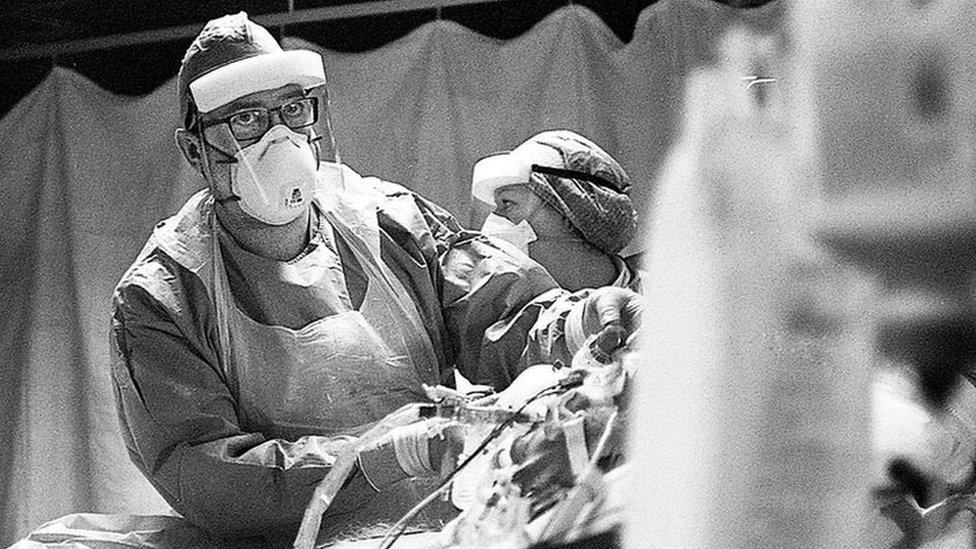Coronavirus: Ambulance crews adapt to new challenges of Covid-19
- Published
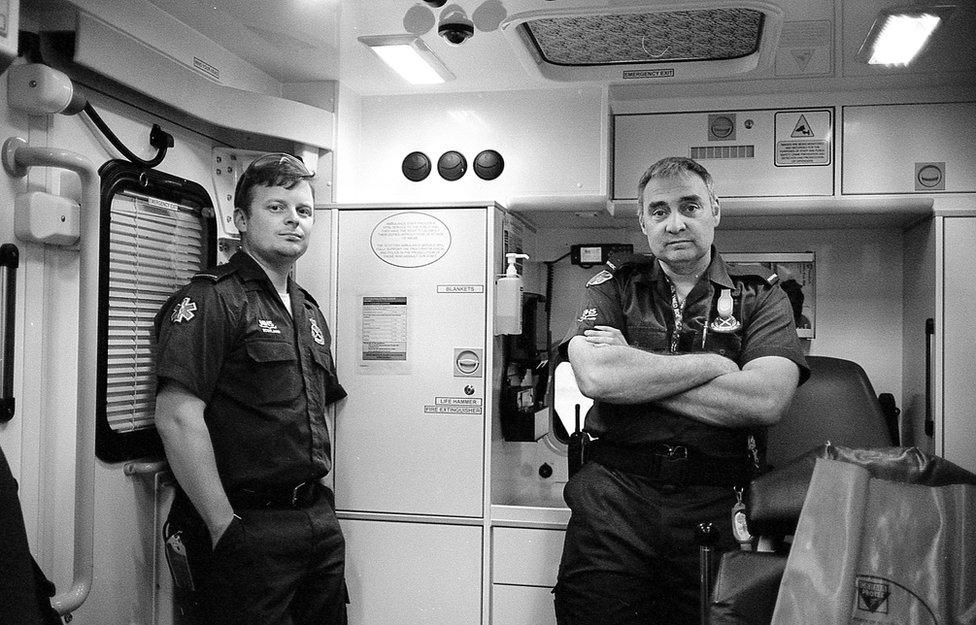
Cases of Covid-19 may be reducing but in the wake of the pandemic new challenges are emerging for ambulance staff.
The Nine was allowed exclusive access, using only still photography, to document the overnight shift of Dunfermline ambulance crews, as they adapt to the consequences of the lockdown.
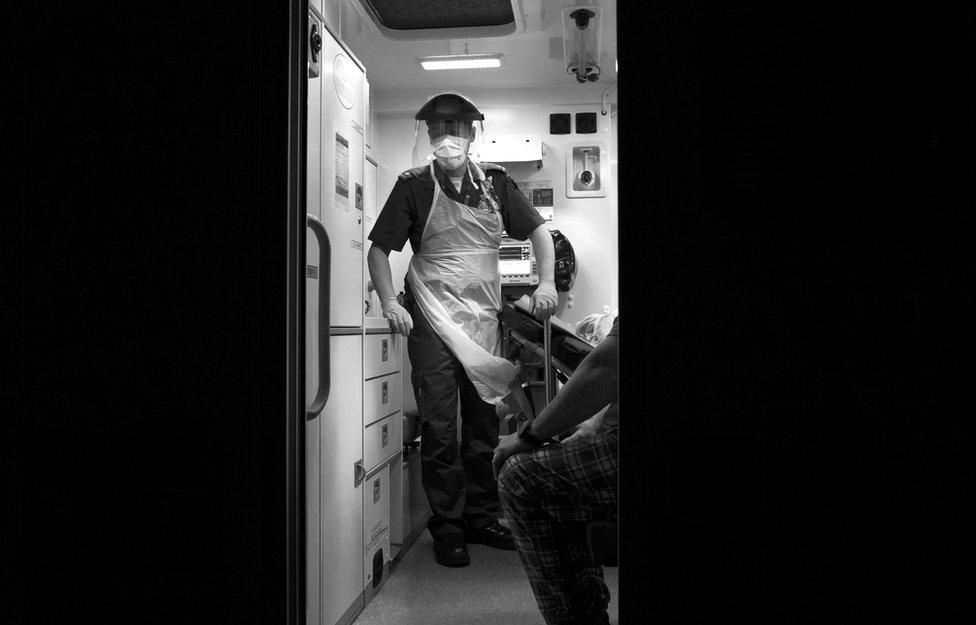
An ambulance crew arrives at its first call of the night. The crew don full PPE even though the patient has chest pains and is not a suspected Covid-19 case.
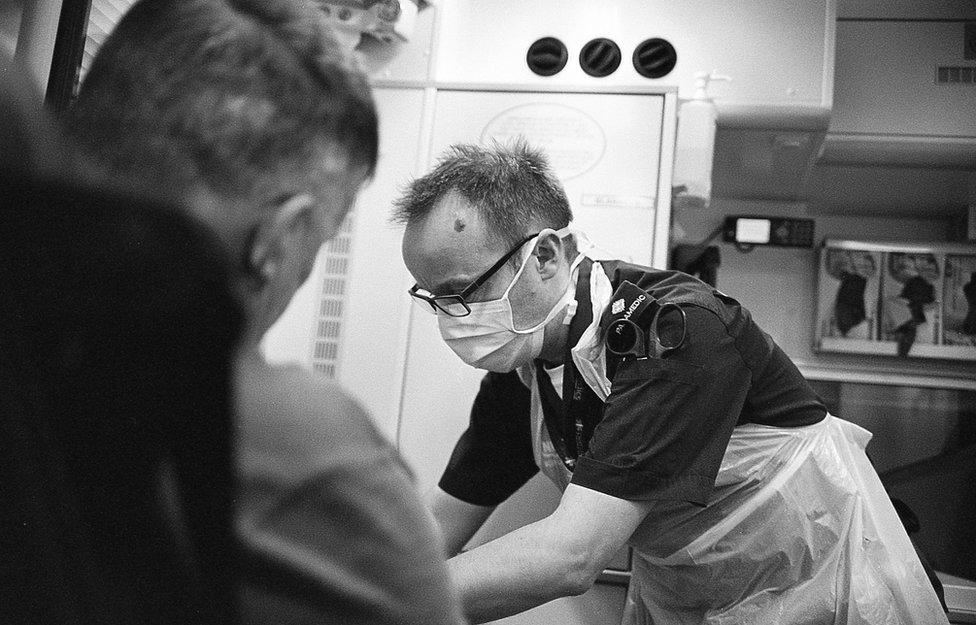
"If you think you're having a stroke, call 999," says paramedic team leader Mark Crawford as he tends to the patient. In this case, despite the distress starting at breakfast time, a call was only made at 10pm, for fear of burdening the NHS.
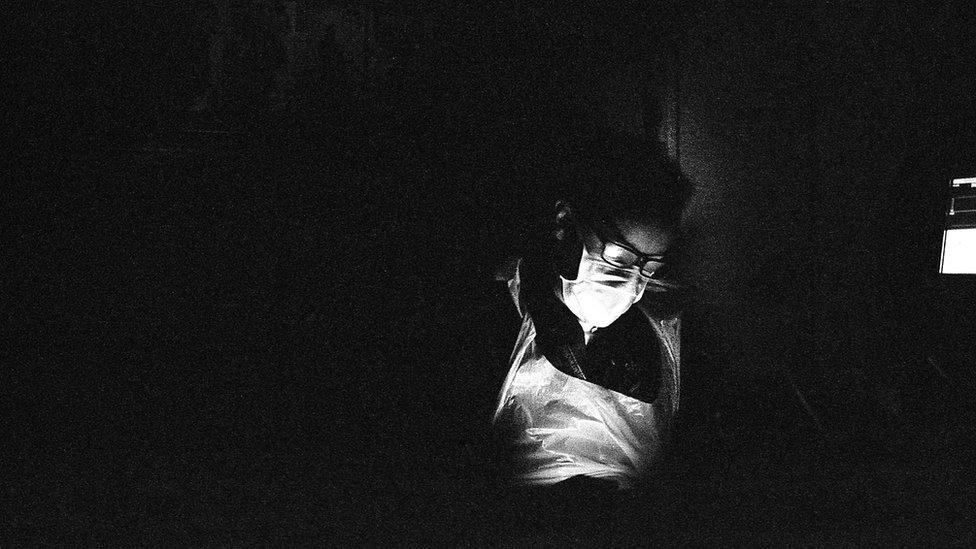
"Standard calls dropped off and it bought us time for the virus," says Mark Crawford.
"Now calls are picking up again, but many are from drinking at home, domestic abuse and mental health issues.
"People are really struggling," the paramedic says.
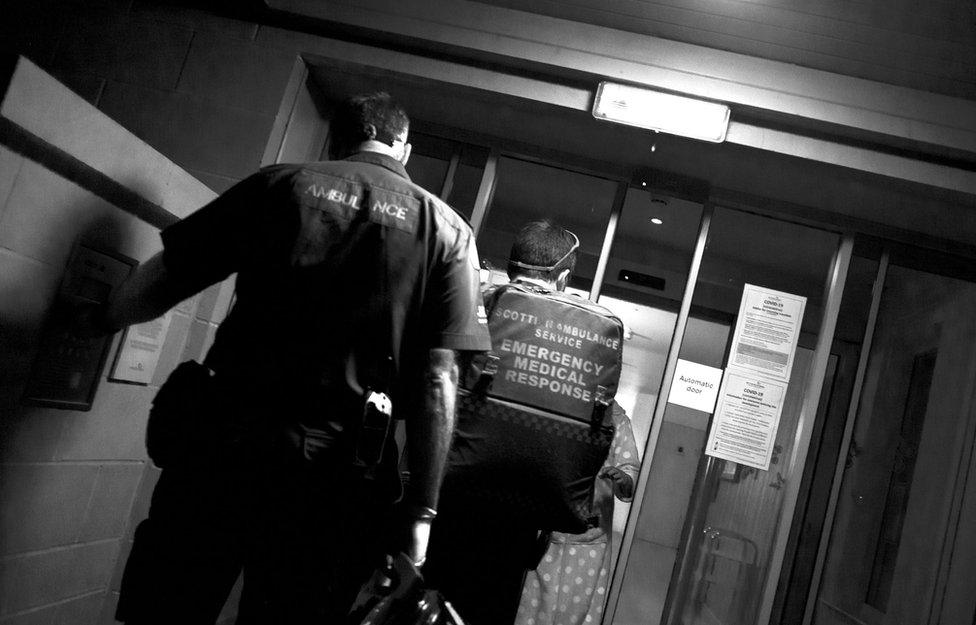
Later the crew respond to a lockdown dilemma.
An 89 year-old has fallen and his wife can't lift him.
Due to social distancing restrictions, their neighbour is unable to enter their flat to help and so an ambulance was called.
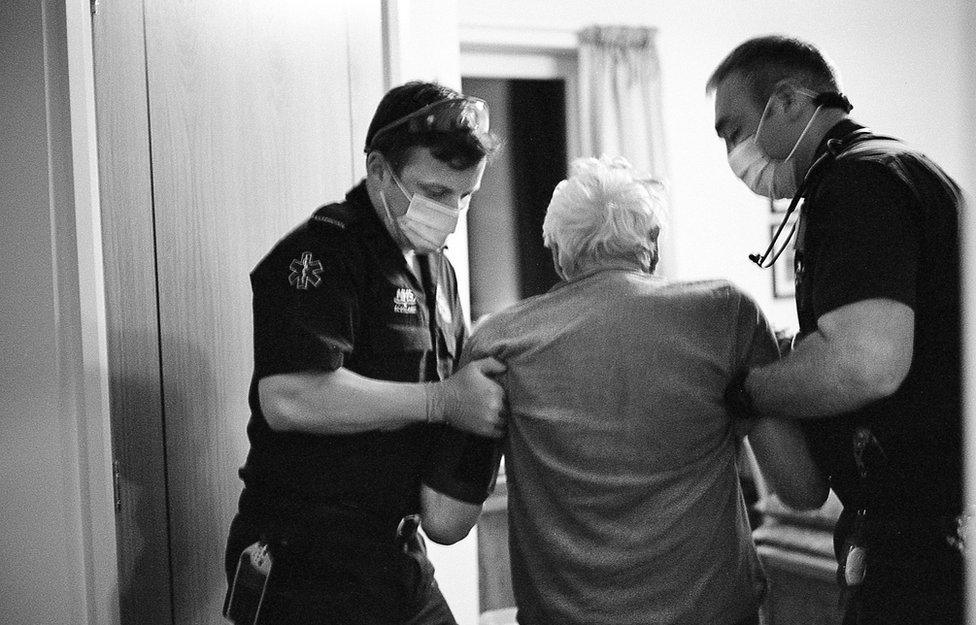
Paramedic Alex Goldie says: "We are getting back to business as usual, but only to a certain degree. This man's friend is three doors down and we still needed to be called in."
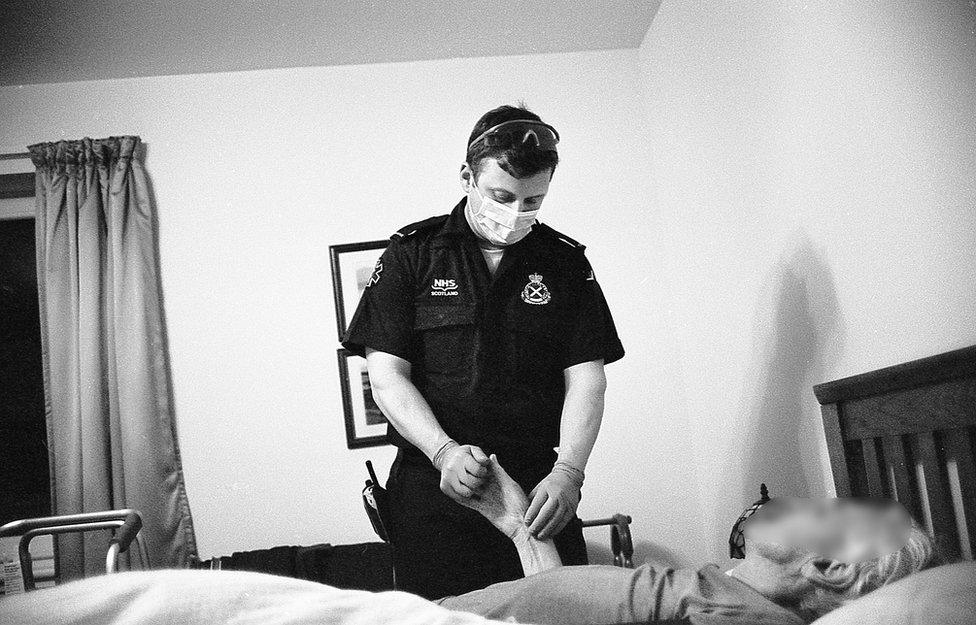
While adjusting to lockdown circumstances, the paramedics must also manage their own, new anxieties of exposure to the virus.
"You can feel patients cough in your hair," says ambulance technician Julian Winn.
"You just let the fear wash over you, remember where you are, what you're doing, and carry on with the job. We're here for the patients first."
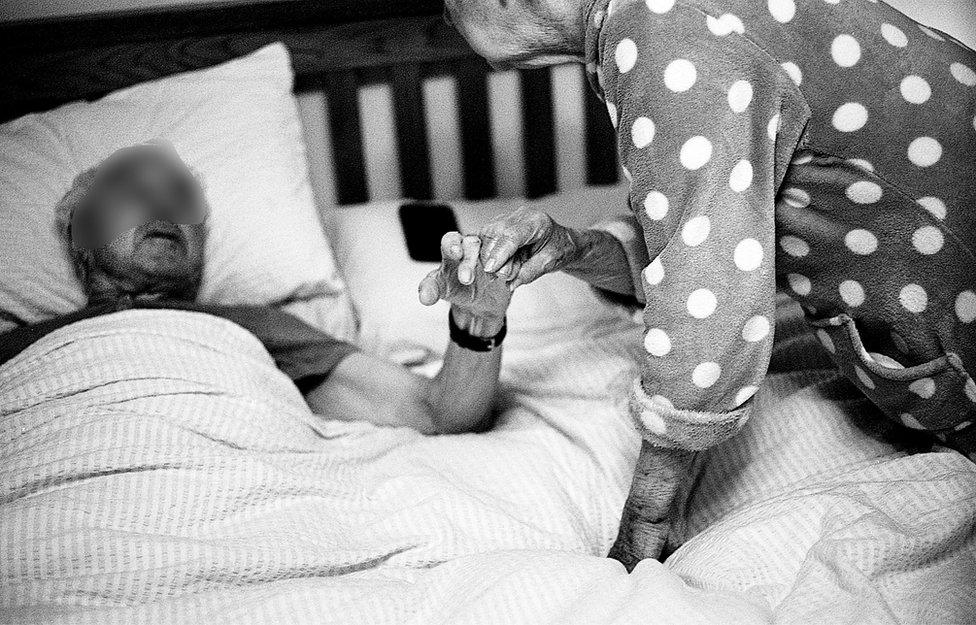
The 89-year-old patient jokes: "I'm going to die eventually."
"Yes, eventually, but not tonight," responds his wife with a laugh. "You better not, we've got a steak pie for the weekend."
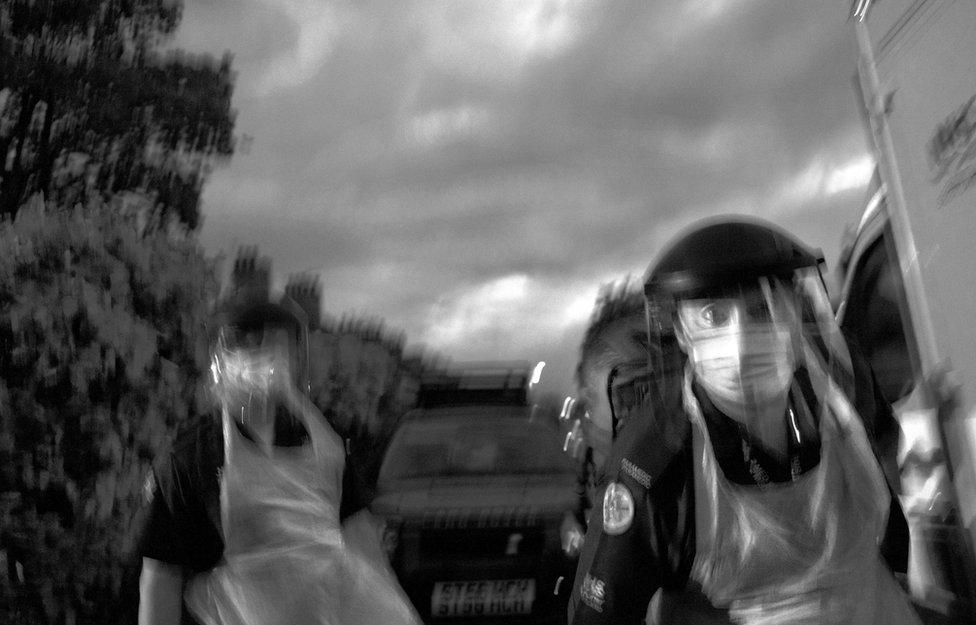
At 5am, the crew arrives to a chaotic scene at an illegal house party that turned violent. A police response was also required to help them treat an injured partygoer.
"People are effectively caged in lockdown, the result is domestic violence, communities being torn apart," says ambulance technician Julian Winn.
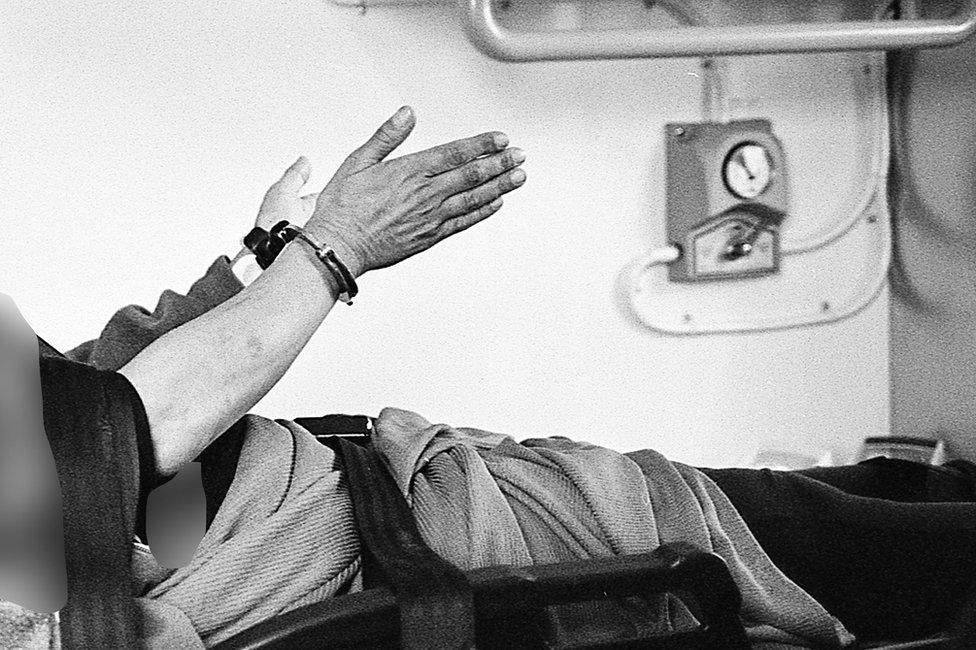
A patient injured at the party-turned-altercation is herself arrested, before she is taken to hospital.
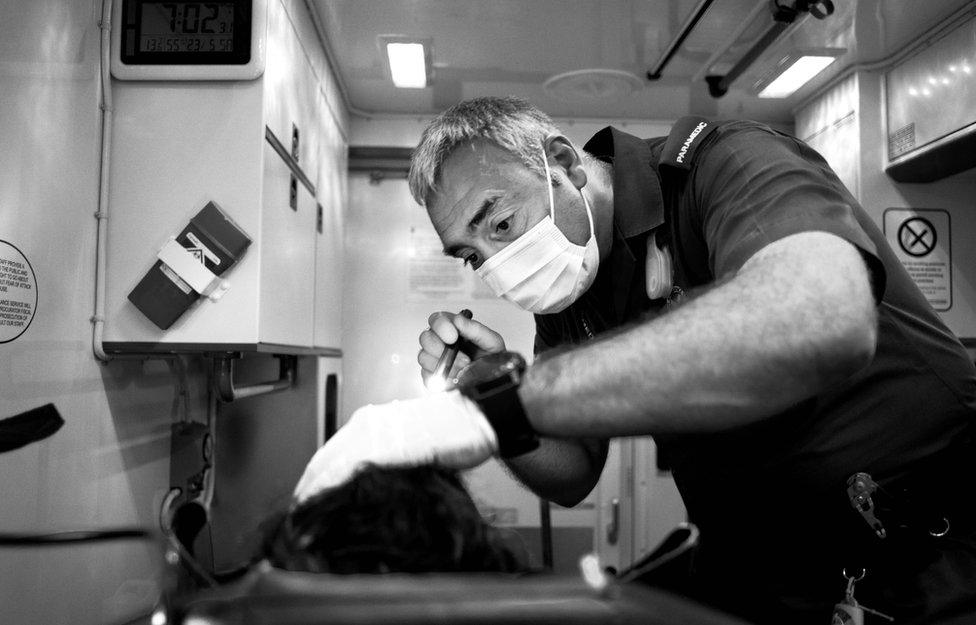
"People are gathering and trying to hide it - and it explodes," says Alex Goldie. "And these are the kind of jobs we're going to get more of while this is all going on."
All images copyright Christopher Bobyn/BBC
- Published1 May 2020
